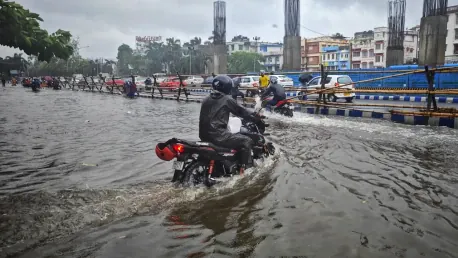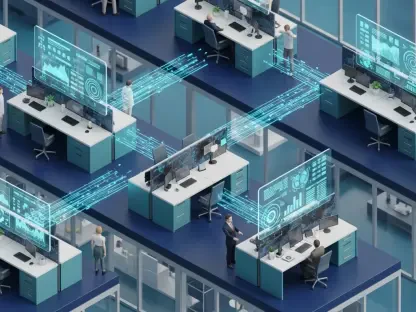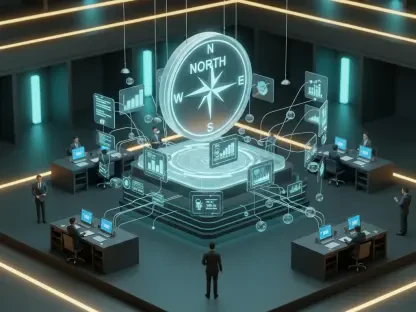The Small Business Administration’s disaster loan program, key to offering low-interest loans to disaster survivors, renters, homeowners, and business owners, is facing a critical shortage of funds. This predicament comes in the wake of consecutive hurricanes that have wreaked havoc on communities, straining the SBA’s ability to provide necessary financial assistance. As hurricane victims strive to rebuild, they find themselves at an impasse due to depleted resources. President Joe Biden has been vocal about the program’s importance, encouraging disaster survivors to continue applying for aid despite the current funding gap.
In response to the emergency, the SBA aims to process new applications during this period. Loan disbursements will be contingent upon Congress approving additional funds to replenish the program. Unfortunately, the timing is less than ideal, as Congress is currently on a month-long recess and isn’t expected to reconvene until after the elections on November 12. This hiatus magnifies the financial strain felt by affected communities, emphasizing the need for swift and decisive legislative action to address the crisis.
Urgent Call for Congressional Action
The urgency of congressional intervention in remedying the SBA’s financial shortfall cannot be overstated. SBA Administrator Isabel Guzman had previously alerted lawmakers to the impending depletion of funds, noting that the agency’s loan authority had dropped below $50 million. The arrival of Hurricane Milton on the heels of Hurricane Helene only intensified the demand for disaster relief loans, quickly draining the remaining funds. With around 12,000 applications submitted in a short span, the need for additional funding became acute.
President Biden has reiterated the critical role of the SBA’s disaster loan program, underscoring that without immediate congressional action, the agency will be unable to issue new loans vital for hurricane recovery. Speaker Mike Johnson’s commitment to addressing the funding deficit once Congress reconvenes offers a glimmer of hope. The aim is to foster a bipartisan initiative to stabilize disaster recovery efforts, ensuring that the SBA can continue its essential support to affected businesses and individuals.
The Impact on Disaster Survivors
The depletion of SBA funds brings dire consequences for countless hurricane survivors who are left in financial uncertainty. Prior to the funding shortfall, nearly $48 million in loans from Hurricane Helene had been disbursed, but much more is required to meet the ongoing needs for disaster relief. While individuals with existing loans will continue receiving payments, new applicants face an uncertain future, exacerbating the challenges faced by local economies striving to recover.
SBA loans generally offer more favorable terms compared to commercial lenders. Renters can secure loans up to $100,000, homeowners up to $500,000, and business owners up to $2 million. These loans are set at attractively low-interest rates—4% for businesses, 3.25% for nonprofit organizations, and 2.813% for homeowners and renters. Additionally, payments are deferred for 12 months with no interest accruing during this period, providing crucial financial relief to those affected. However, without new funds, these benefits cannot be extended to new applicants in dire need.
FEMA as an Alternative
With the SBA facing a funding crisis, many disaster survivors may turn to the Federal Emergency Management Agency (FEMA) for aid. Unlike SBA loans, FEMA grants do not require repayment, making them a more attractive option for some disaster victims. Nonetheless, FEMA is also under pressure as lawmakers work to increase its budget in response to the growing demand for disaster relief.
SBA Administrator Isabel Guzman has stressed the need for swift financial relief to ensure the quick recovery and stabilization of local economies. While awaiting congressional action, the SBA encourages disaster survivors to continue applying for loans, pledging to expedite their processing once funds are replenished. Priority remains on ensuring that existing loan holders receive uninterrupted payments, and in some cases, a minimal number of new loans might still be issued as funds from loan cancellations or maturations become available.
The Path Forward
The Small Business Administration’s disaster loan program, vital for providing low-interest loans to disaster survivors, renters, homeowners, and business owners, is experiencing a severe fund shortage. This crisis follows a series of hurricanes that have devastated communities, severely limiting the SBA’s capacity to offer crucial financial support. As hurricane victims work to rebuild, they are hitting a roadblock due to depleted resources. President Joe Biden has underscored the program’s importance and urged disaster survivors to keep applying for aid, despite the funding shortfall.
The SBA plans to process new applications during this period, but loan disbursements will depend on Congress approving additional funds. Unfortunately, Congress is on a month-long recess and won’t reconvene until after the elections on November 12, exacerbating the financial strain on affected communities. This delay highlights the urgent need for swift and decisive legislative action to address the crisis. The current situation underscores the importance of the SBA’s disaster loan program and the necessity of ensuring it remains adequately funded.









